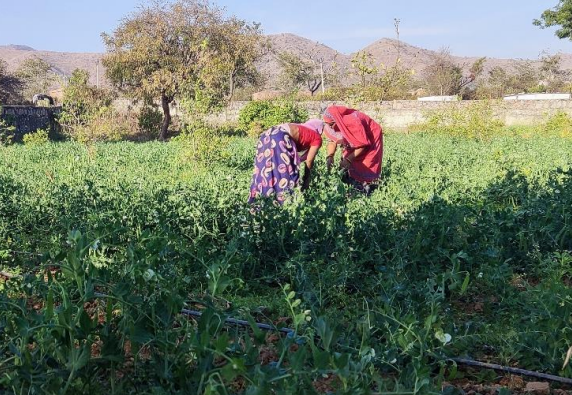Sustainability Unearthed: The Extraordinary Journey of “Ordinary” Peas
The success story of growing garden peas using compost
In the urban jungle, a quiet revolution is happening. This is a tale not just of farming but of debunking myths and reshaping our understanding of agricultural productivity while nurturing our planet. Our work is founded on the ethos that the produce of our lands should serve a dual purpose: nourish the consumers and safeguard the planet. Our cultivation practices are constantly tweaked to align with this philosophy as we strive to create an ecosystem that is productive and environmentally friendly.
Central to our approach is challenging the widely held belief that sustainable farming practices compromise productivity. To counter this, we concocted compost – a fertile blend teeming with microbial activity and replete with plant-boosting nutrients. This compost, the lifeblood of any field, has proven to be a potent catalyst for growth, demonstrating that sustainability and productivity can indeed coexist. Armed with soil that had been boosted with this compost, success was notably evident in cultivating garden peas during the rabi or winter season. According to the Food and Agriculture Organization of the United Nations, the world average yield of peas is around 8 tonnes per hectare. However, in some well-managed farms (and in the India region), this can go beyond 10 tonnes per hectare. At our pilot farm, which had been under our sustainable cultivation umbrella for barely a season, this number exceeded 10 tonnes per hectare! The pods were healthy, with an average pod count of 10 peas each. We did not need to carry out any pest control at all. This was partly thanks to a simple intervention of planting garlic with the peas. Best of all, the whole season was fully managed using drip irrigation, thus conserving the maximum amount of water.
However, the true achievement was in the taste of the peas themselves. They were not just abundant but extraordinarily sweet, leaving a lasting impression on the consumers. Resellers began marketing them as the best peas in town, and the feedback was overwhelming. Friends, family, and even distant relatives were swept up in the pea sensation, sharing their joy and surprise at the unparalleled flavor of these peas, with many confessing to savoring them raw!

Figure 2 Harvested Produce
Yet, we recognize that achieving sustainability in cultivation is a journey rather than a destination. It’s a process requiring continuous learning, adaptation, and evolution. But the success story with garden peas sends a powerful message – it is indeed possible.
Our call to action echoes the belief in collective responsibility toward a greener, more nourishing future for our planet. Let’s build on this and make it a story about planting the seeds of change, fostering a new era of agriculture that respects our planet while delivering exceptional produce. The sweetness of this success, symbolized in the delightful peas, is a testament to our Earth’s health and its inhabitants’ well-being. It’s a tale of sustainability and hope, unfolding right in the heart of our cities, one pea pod at a time.
References
https://www.fao.org/faostat/en/#data/QCL
Further reading
Antinutrients in plant-based foods: are they good or bad for our health?










































































